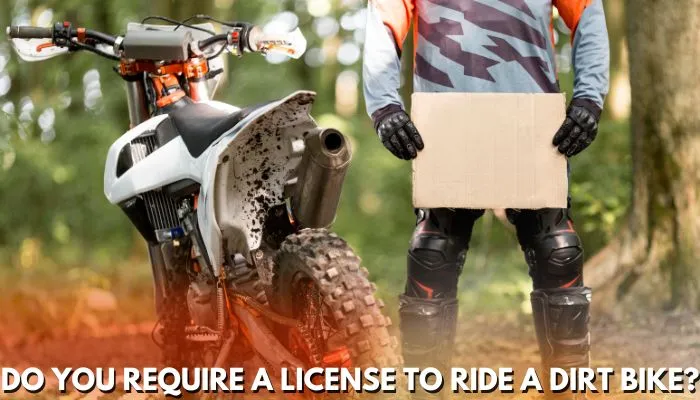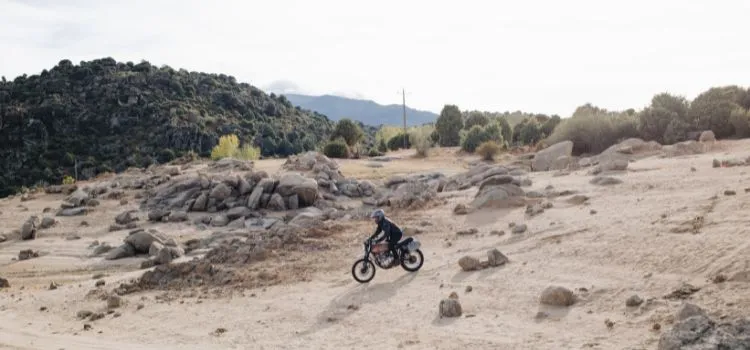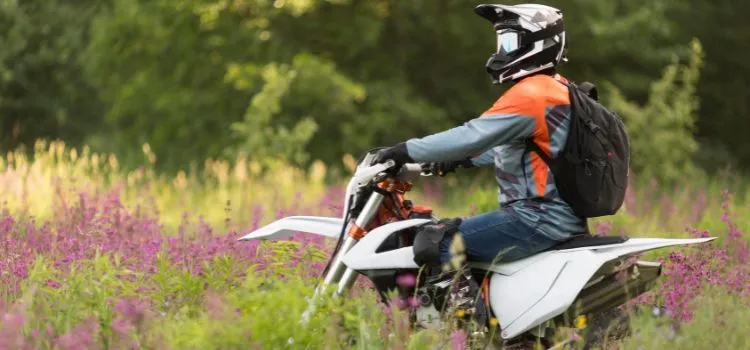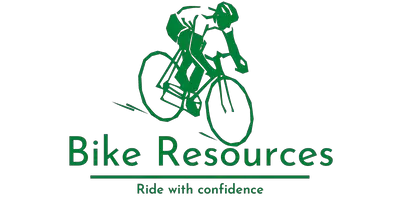Do You Require A License To Ride A Dirt Bike?

Similar to other types of vehicles, dirt bikes are equipped with safety measures that make them a good option for off-road as well as all-terrain riding excursions. The same as with any motor vehicle; however, you might not be able to operate it or drive it without a driver’s license or even a dirt bike license plate, the registration process, or a permit. You must adhere to and comprehend certain criteria set forth by state and federal laws.
Table of Contents
Short Answer
So, do you need a license for a dirt bike? Driving a dirt bike on the majority of private land typically doesn’t require a driving license, although doing so on public highways almost always does. Before you may use your dual-purpose or dirt bike, it also has to have a few more components, such as a license plate.
Take into account that some of the regulations governing dirt bikes in Florida won’t be the same as those governing them in Texas, North Carolina, or other states as well. In this article, we’ll concentrate on the several locations where riding a dirt bike is normally permitted without a driver’s license and places where dirt biking is legal.
Do You Need A License For A Dirt Bike?
Yes, in the majority of circumstances, a license is required to ride a dirt bike. Depending on the nation or territory you are in, there are different procedures and regulations for getting a license.
For instance, off-road vehicles, such as dirt motorcycles, are commonly categorized as such in the United States. As a result, riders are not permitted to operate them on roadways that are public. Consequently, using a dirt bike does not necessitate a conventional driver’s license. On the other hand, multiple states demand that riders acquire an off-road vehicle (ORV) license or permit, which often entails finishing safety training and passing an exam.
It’s also possible that you’ll need to apply for special recreation permission if you intend to ride a dirt bike on the property of the public, like a national park or forest. Additionally, irrespective of whether they are riding on private or public property, some states mandate that users of dirt bikes always wear helmets. Before riding a dirt bike, it’s crucial to make sure you are in compliance with all local rules and laws. You could face fines or other consequences if you ride without the appropriate documentation.
Why Do You Need A License For A Dirt Bike?

For a variety of reasons, you need a license to ride a dirt bike.
- Safety and Security
Driving a dirt bike could definitely be risky, especially if you lack expertise or sufficient training. You can make sure that you comprehend the right methods for operating a dirt bike securely and safely by attending a course on security and passing a test on paper before applying for a license, which is normally required.
- Legal requirements:
It is often against the law to ride a dirt bike, lacking the appropriate license or authorization. You are able to prevent fines along with additional legal repercussions by obtaining the required licenses and permissions.
- Protection of the environment:
Using a dirt bike could have a harmful effect on the environment, particularly if you do so on public property. A special recreation approval, which could be necessary for some places, can help guarantee that you enjoy riding in areas that are approved for off-road use as well as that you are abiding by the rules and regulations that exist for careful riding.
- Community relations:
Riding a dirt bike can occasionally disturb neighboring communities, particularly if you are doing so in residential areas. By acquiring the required licenses and authorizations, you can prove that you are an accountable bike rider who is dedicated to abiding by the law and being a nice neighbor.
Areas Where Driving A Dirt Bike Without A License Is Permitted
The rules and laws governing riding a dirt bike without a license differ from one nation to the next and even from one state or province to another. Regardless of whether a dirt bike is streets legal or not, it is generally forbidden to ride one on public streets or roadways without a license. However, there are some locations where you might be permitted to use a dirt bike without a license. Some instances are mentioned as follows:
- Residential property:
You might be able to use a dirt bike without a license if you own the property or have authorization to ride on it, such as a farm or motocross course. To be sure that riding a dirt bike is permitted on a certain piece of land, you should, however, constantly verify with the owner or the relevant municipal authorities.
- Off-road parks:
In some locations, there are set aside off-road areas where you are permitted to ride a dirt bike without a license. It may be necessary to pay a charge or obtain a permit to ride in these parks, which frequently contain dirt bike-specific routes and courses.
- State and national woods:
Certain state and national forests permit dirt bike riding on established trails. However, confirming that riding dirt bikes is permitted is crucial, and learning whether any licenses or fees are necessary with the Department of Forests or the park ranger station is crucial.
- Sand dunes or desert:
In some locations, among which is the Mojave Desert in California, there are approved zones where dirt bike riders are allowed to travel on the sand dunes. To make sure that riding in these regions is permitted and to comply with any restrictions or regulations, it is crucial to verify with the local authorities.
Despite the fact that you are not needed to have a license, it is still crucial to always abide by the laws and guidelines when riding a dirt bike. As part of this, riders must dress safely, stay in specified zones exclusively, and show consideration for other road users and the environment.
What Age Is Needed To Obtain A Dirt Bike License?

Talking about do you need a license for a dirt bike, the age factor must also be kept in mind. Different nations, states, and provinces have different minimum ages for obtaining a dirt bike license or endorsement. There may not be a set minimum requirement for ages for owning a dirt bike license in some locations, while it might be the same age as the required for a conventional motorcycle license in others.
For instance, the legal age to obtain a dirt bike endorsement or license differs from state to state in the United States. There could not be a set age limit for obtaining a dirt bike license in some areas, while in others, the age requirement is commonly about 16 years old. The Department of Motor Vehicles in your state or another relevant agency should be consulted to ascertain the precise requirements.
The minimum age needed to obtain a dirt bike license may vary in other nations. In the United Kingdom, for instance, you have to be a minimum of 16 years of age to get on a motorcycle as well as a scooter with an engine up to 50cc, and a minimum of 17 years of age to ride a bike with an engine over 50 cc.
How Do You Acquire A Dirt Bike License?
Depending on the nation, state, or province, there are different requirements for obtaining a dirt bike license. It’s possible that you can ride a dirt bike lawfully on public roads as well as trails in some regions without having to get a specific license, but in other places, you might need to get a license or endorsement. To obtain a license for a dirt bike, you might be required to follow the general processes listed below:
- You must be of legal age:
For the most part, you have to be a specific age to get a dirt bike endorsement or license. Depending on where you are, there may be a minimum age limit, although it is usually approximately sixteen years old.
- Obtain a learner’s permit:
Prior to being able to ride a dirt bike legally, several provinces or states might call for you to get a learner’s permission. Typically, to achieve this, you must succeed on a written and skills test.
- Complete a safety course:
Before you can get a license or endorsement for a dirt bike, many places require that you pass a safety course. Both classroom and practical teaching may be included in these courses, which teach you the fundamentals of riding a dirt bike safely.
- Undergo a skills test:
Depending on where you are, you might have to pass a test of your abilities to prove that you can ride a dirt bike properly on roads or trails.
- Submit an application for a permit or endorsement:
Following completion of all prerequisites, you can submit an application for a dirt bike license or endorsement to the nearby Department of Motor Vehicles or similar appropriate agency. You must present documentation of your identification, place of residence, and accomplishment of any prerequisite training or exams.
It is essential to note that the particular requirements to obtain a dirt bike license or endorsement can vary greatly based on the location. Thus, it is vital that you inspect with your local licensing body to determine the demands for your area. Furthermore, even though you are not obligated to have a license or endorsement to ride a dirt bike, it is still crucial to adhere to safety regulations and wear the proper safety gear at all times.
Places Where You Can Legally Ride Your Dirt Bike:
Depending on your area, the type of terrain, the rider’s age and expertise, and other factors, there may be different laws governing where you can lawfully ride a dirt bike. But generally speaking, there are different locations where riding a dirt bike may be permitted:
- Private Property:
With the owner’s permission, you might be permitted to ride your dirt bike on personal property, which may include a farm or ranch if you have access to it. However, it’s crucial to confirm that you have authorization and aren’t trespassing.
- Open trails:
Several states and local governments have set aside trails as well as parks whereby dirt bikes are permitted. You might need to pay a charge or obtain a permit to use these trails, which might be administered by government officials or by nonprofits. It’s crucial to read the guidelines for such trails and to follow the marked tracks.
- Tracks for motocross:
Motocross tracks, which are made expressly for riding dirt bikes, are widespread. These tracks might belong to private individuals or businesses, and access to them might be restricted or cost money. Before biking on a motocross track, it’s vital to have experience and the appropriate safety equipment because they frequently involve jumps, barriers, and other characteristics not present on public trails.
- Off-Road Parks:
Off-road parks resemble motocross tracks but can have a wider range of terrain and features, such as rocky hills, mud pits, and other obstacles. These parks could also have entrance fees or membership requirements, as well as particular rules and guidelines for rider safety.
It’s vital to keep in mind that depending on where you live, the rules and regulations for riding a dirt bike might differ greatly. To make sure you have a safe and secure ride, it’s important to conduct your homework and abide by all rules and regulations.
Conclusion:
Well, now you know do you need a license for a dirt bike. There are specially designed places where you can legally drive your dirt bikes. However, you still need a driving license to use your dirt bike in order to have a legal, secure, and comfortable ride. In order to prevent injuries or accidents, it’s also crucial to ride within your ability level and to use the appropriate safety gear, such as a helmet, goggles, as well as protective gear and clothes.
